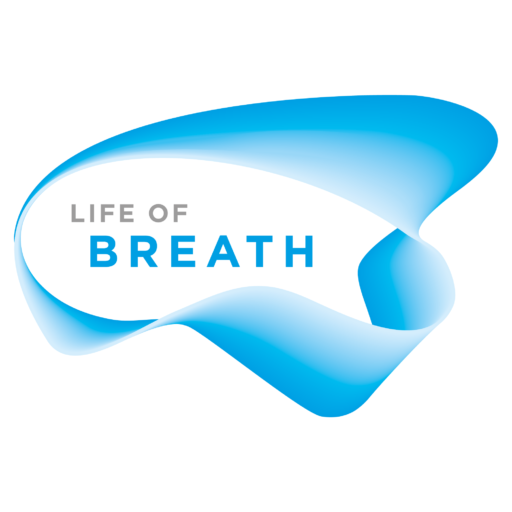Every Last Breath (2)
In an essay that first appeared in Atrium: The Report of the Northwestern Medical Humanities & Bioethics Program (Spring 2011, p. 6), Professor of English Joanne Jacobson writes:
My accounts, which I can swear to have kept faithfully, I have, indeed, never got audited, still less accepted, still less paid and settled. (Henry David Thoreau, Walden)
My mother can drive to the doctor or the grocery store, but she cannot drive at night or in snow. Probably she shouldn’t be driving at all, but she can’t agree to give up her independence.
My mother can go on every day, even when she feels tired or chilled or discouraged—dressing herself and taking medication for the arthritis in her hip and back and neck and for high blood pressure—but she cannot beat back completely the respiratory infections that keep recurring and turning into pneumonia, more serious each time.
My mother cannot leave her apartment without an oxygen canister, but she can breathe on her own wherever she goes if she sits in a chair or on a sofa.
My mother cannot hear the conversation at the dinner table if she doesn’t wear her hearing aids, and she cannot follow what others are saying unless they speak slowly and loudly and are prepared to repeat. She cannot wear hearing aids when her oxygen apparatus is hooked over her ears.
My mother cannot bend down to tie her own shoes, but she can make vegetarian chopped liver and cream of broccoli soup, and she can bake raspberry squares from the recipe that she’s been using since I was a kid. She cannot always keep her grandchildren’s birthdays straight, but she can still manage the old Scrabble strategies, coming up with seven-letter words and boosting her score by building across the board on the coloured double-letter and triple-word squares.
My mother can go to my sister and brother-in-law’s house and sit drinking seltzer under the grape arbour that they just built in their backyard, but she cannot stay outside if there’s wind. And she cannot fly alone from Chicago to spend the month of January in warm Phoenix again with her lifelong friend Clarice.
My mother can watch the birds shift with the seasons through the picture window in her living room, but she cannot return to Costa Rica where we were lucky enough to catch sight of the Resplendent Quetzal through a field telescope—can a bird draped in green, thick and lush as ermine, be real? we asked one another in wonder—or to Sanibel Island, where we watched flocks of anhingas and gulls jam the scarlet, low-hanging sunset sky.
My mother can have Thanksgiving dinner with my sister’s in-laws, an hour’s drive from her house, and she can spend Passover at her nephew’s, a mile away. But she cannot catch all the words of the Four Questions chanted in the reedy, hesitant voice of the youngest at the seder table. And she cannot any longer travel to Minnesota for the weddings and birthdays and bar and bat mitzvahs of her nephews and nieces, or to lay flowers on the grave there where they buried her older sister thirty years ago.
My mother can never visit me in New York again.
My mother cannot understand why my sister and I don’t use coupons at the grocery store; why her downstairs neighbour blocks the driveway when she parks, or her upstairs neighbour has so many packages delivered; why Americans are so short-sighted about the environment—or why her own twin sister hardly ever calls her yet continues to complain that my mother doesn’t call her! But she understands that her daughters are worried. She knows that we’re measuring the strength of her voice over the phone, that we’re checking with one another about her, that we’re not completely convinced that she’s okay.
My mother can arrange to have her apartment redecorated, she can select paint colours for four rooms and she can order fabric for new floor-to-ceiling drapes, but she cannot ask her doctor the hard questions: why doesn’t your office return my phone calls? Will I be able to go outside this winter?
I can fly home when my mother ends up in the emergency room, straining for air, but I can’t provide the patience for the long process of recovery from pneumonia—for the laboured three-minute walks from her hospital room to the nurses’ station with which she must slowly start, even though only a week before she was pushing her own cart through the grocery store. I can help my mother sort her bills into piles, paid and unpaid, on the dining room table: her monthly condo fees and electricity and water and heat; the contributions that she makes to her synagogue and to agencies committed to rebuilding progressive politics in Israel and to combating hunger all over the world. But she won’t let me show her a better way to organize the pills that she deposits each morning into a discoloured plastic container top on her kitchen counter, where they roll around the rim like a children’s puzzle.
How can it take so long for my mother to get ready to go outside? I try not to count the minutes as she showers and decides what to wear; as she pulls up her socks with the long shoehorn on which she depends because of her arthritis; as she puts on her plastic mask and inhales medicated mist; as she makes breakfast and eats it; as she puts all the dishes in the sink and she wipes her placemat; as she fills her oxygen tank and she grabs the stamped mail; as she braces for her first cautious breath of chill, hurting air. My mother is no longer strong enough to clean her apartment, and she claims that she doesn’t have the time to look for help or the money to pay for it. I try to convince her otherwise—she has plenty of both!—first reassuring and then squabbling with her, until both of us are weary although nothing is settled; until it’s hard to remember love.



